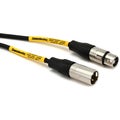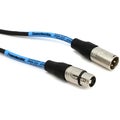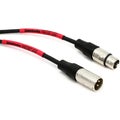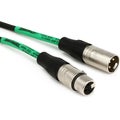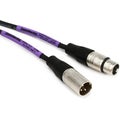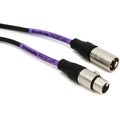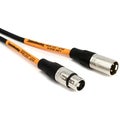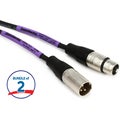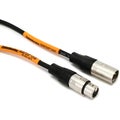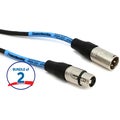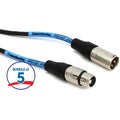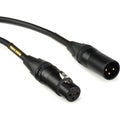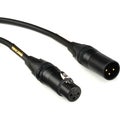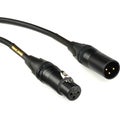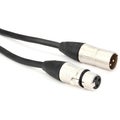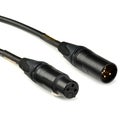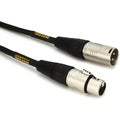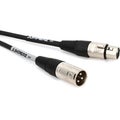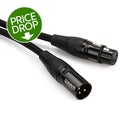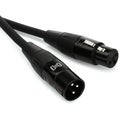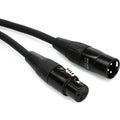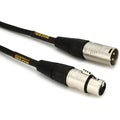Microphone Cables
Read our Cables Buying GuideGet More at Sweetwater
Refine Your Search
Availability
Brand
- Pro Co (107)
- JUMPERZ (99)
- Gator (88)
- Hosa (47)
- Mogami (24)
- RapcoHorizon (24)
- Telefunken (20)
- Warm Audio (19)
- Countryman (15)
- Whirlwind (15)
- Monster (13)
- D'Addario (10)
- Roland (10)
- DPA (7)
- Audio-Technica (6)
- Que Audio (4)
- Saramonic (4)
- StageMASTER (4)
- Asterope (3)
- Galaxy Audio (3)
- Lewitt (3)
- Rode (3)
- Anchor Audio (2)
- Fender (2)
- Sennheiser (2)
- Shure (2)
- Audix (1)
- Crown (1)
- DiMarzio (1)
- Ernie Ball (1)
- Lauten Audio (1)
- On-Stage (1)
- Zoom (1)
Price Range
- Under $25 (56)
- $25 to $50 (142)
- $50 to $100 (187)
- $100 to $200 (88)
- $200 to $300 (33)
- $300 to $500 (25)
- $500 to $750 (9)
- $750 to $1000 (2)
- $1000 to $1500 (1)
Financing What is this?
Type of Deal
Series
- Pro Co Sweetwater Co-Branded (46)
- JUMPERZ Blue Line (38)
- JUMPERZ Gold (37)
- Gator Composer Series (32)
- Gator Headliner Series (32)
- Hosa Hosa Pro (31)
- Pro Co Lifelines (26)
- Gator Backline Series (24)
- Pro Co Excellines (24)
- Whirlwind MK4 (15)
- Hosa Essentials (12)
- Countryman H6 (11)
- JUMPERZ Studio Microphone (11)
- Mogami Gold (11)
- Pro Co Evolution (11)
- Telefunken Studio Series (11)
- RapcoHorizon Players (8)
- Roland Black (8)
- Warm Audio Premier Gold (8)
- Warm Audio Pro Silver (8)
- Mogami CorePlus (7)
- Monster Performer 600 (7)
- Mogami Platinum (6)
- Monster Classic (6)
- Telefunken Stage Series (6)
- D'Addario Custom (5)
- Countryman E6 (4)
- D'Addario Classic (3)
- D'Addario American Stage (2)
- Fender Professional (2)
- Lewitt DTP (2)
- Roland Gold (2)
- StageMASTER SMM (2)
- Audix Micros (1)
- Lewitt LCT (1)
- Que Audio DA (1)
- Rode XLR-CABLE (1)
- Telefunken STMC (1)
Connector 1
- 7-pin XLR Male (1)
- 5-pin DMX Female (1)
- TRS Male 1/4 (2)
- TRS Male 1/8 (3)
- TS Male 1/4 (1)
- MicroDot Female (3)
- XLR Female (269)
- XLR Male (14)
Connector 2
- 7-pin XLR Female (1)
- TA4F (1)
- TRS Male 1/4 (8)
- TS Male 1/4 (3)
- Lightning (1)
- MicroDot Male (5)
- XLR Female (11)
- XLR Male (266)
Length What is this?
- 200' (1)
- 150' (1)
- 100' (16)
- 75' (4)
- 50' (26)
- 32.8' (3)
- 30' (20)
- 25' (26)
- 20' (41)
- 19.5' (1)
- 16.4' (4)
- 15' (26)
- 13.1' (1)
- 12' (1)
- 10' (51)
- 8' (1)
- 6.5' (1)
- 6' (14)
- 5.9' (1)
- 5' (18)
- 4.9' (1)
- 3.3' (1)
- 3' (20)
- 2' (7)
- 1.5' (5)
- 1' (5)
Related Searches
You can only compare four products at a time.
If you want to compare another product, please remove one of your earlier choices.Please select more items to compare
Microphone level is seriously weak. In fact, the number-one job of microphone preamps is to take this weak signal and amplify it thousands of times so that it’s strong enough for the rest of your gear to use. The problem is the radio frequency (RF) noise and electromagnetic frequency (EMF) noise that are too quiet to even register when compared to line-level signal are easily audible when compared to microphone-level signal. Boost that noise up with everything you actually want to hear, and what should be a beautiful performance suddenly sounds like a hot mess.
Microphone Cable
This is where high-quality microphone cables come it. At Sweetwater, we’re committed to helping artists and engineers like you get the most from their gear, which is why we carry a wide selection of the best XLR microphone cables on the market. A good microphone cable can spell the difference between a great recording or live sound and an even greater disaster. Here are some of the things the engineers at Sweetwater look for in a microphone cable.
Let’s start at the ends and work our way in. On either end of a standard microphone cable there is a set of connectors. These are called XLR connectors, and they typically come as a pair, one male (XLR-M) and one female (XLR-F). On the budget side, the XLR connector housings may be made of molded plastic, but it varies quite a bit. Conversely, virtually all high-end microphone cables feature all metal XLR connectors.
High-quality mic cables also feature a flexible polymer strain relief. This thick rubber piece bridges the stability of the connector housing with the outer shielding, allowing the cable to flex around the connector, without bending sharply. This clever design takes tension off the delicate solder joints between the wires and the contacts in the connector so that everyday use, and even just wrapping up after a gig, won't kill your cables.
When it comes to the microphone cable itself, the shielding is the big hero. On the outside, there’s a buffer of dense polymer " usually PVC " buffering the vulnerable copper on the inside from the onslaught of radio waves and other interference running wild in the air. Shielding is a delicate balancing act " you have to get the density to flexibility ratio just right.
Microphone Cable Shielding
If a microphone cable’s shielding is too thin then you end up with a flexible cable that won’t block out the noise. If it’s too thick then you end up with bulky cable you can’t coil. Great XLR microphone cables feature outer shielding that’s dense yet still thin and supple enough for easy flexibility. However, in an effort to appear more robust, many budget cables feature thick but not dense outer shielding that’s both inflexible and ineffective.
There’s a second layer of shielding within microphone cables. This layer is made up of the ground wire. In installation cable, it may be made of a thin foil wrapped around the leads, but in your typical microphone cable, the ground shielding is a braided sheath that surrounds the leads, separated from them by a thin polymer buffer. The quality of this ground shielding varies quite a bit, and it’s one of the things that separates professional cables from run-of-the-mill cable options.
Shielding is a lot like the lead wires themselves. Any microphone cable worth considering is going to be made of nearly 100% oxygen-free copper, but the material has a lot less to do with the quality of the cable than the construction does. Just a few flaws in the delicate 22awg or 24awg wire will spell disaster for your sound, and a break in the ground shielding in an otherwise excellent mic cable can seriously damage your results.
Shop for Microphone Cables Online
At Sweetwater, we highly suggest making it a priority to invest in quality microphone cables. After all, there’s no more sense connecting a studio-quality mic to a professional-grade preamp with a budget cable than there is to putting worn-out tires on a Maserati. Just one bad cable can tank an otherwise flawless rig. At the same time, be smart about cable lengths. If you need to run 20', then buy a 20' microphone cable. All you get from excess cable are more opportunities for noise to creep into your sound.
We’ve worked with all kinds of engineers and artists, from beginners to world-class pros, and microphone cables are one of the things that can get the best of anyone. If you find yourself wondering what the right microphone cables are for your needs, let us take the guesswork out of it for you. Just give your Sweetwater Sales Engineer a call, and we’ll work with you, your needs, and your budget, and help you find the microphone cables that will work best for you.
Learn More
What are the most popular brands for Microphone Cables on Sweetwater.com?
What are the most popular Microphone Cables on Sweetwater.com?
-
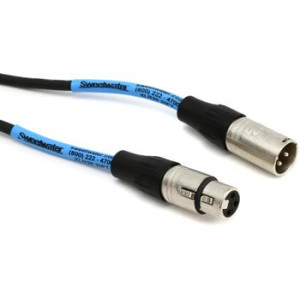
Pro Co EXM-20 Excellines Microphone Cable - 20 foot
★★★★½ 82 reviews
$34.99 -
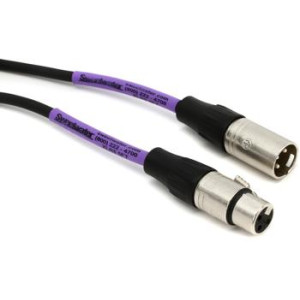
Pro Co EXM-5 Excellines XLR Female to XLR Male Patch Cable - 5 foot
★★★★½ 28 reviews
$26.99 -
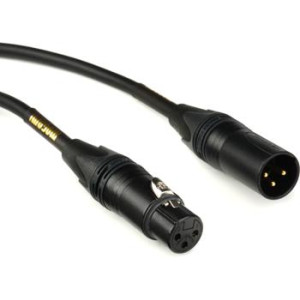
Mogami Gold Studio Microphone Cable - 25-foot
★★★★★ 34 reviews
$94.95 -
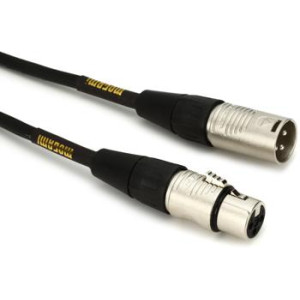
Mogami CorePlus Microphone Cable - 15 foot
★★★★★ 3 reviews
$47.95 -
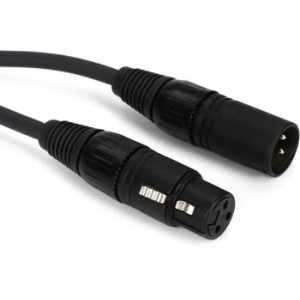
D'Addario PW-CMIC-25 Classic Series Microphone Cable - 25 foot
★★★★ 13 reviews
$24.99
Why shop Microphone Cables at Sweetwater.com?
With a massive selection of Microphone Cables, free shipping, a free 2-year warranty, 24/7 access to award-winning support - and more - Sweetwater gives you more than any other retailer! If you have any questions about Microphone Cables, make sure to give your personal Sales Engineer a call at (800) 222-4700.

